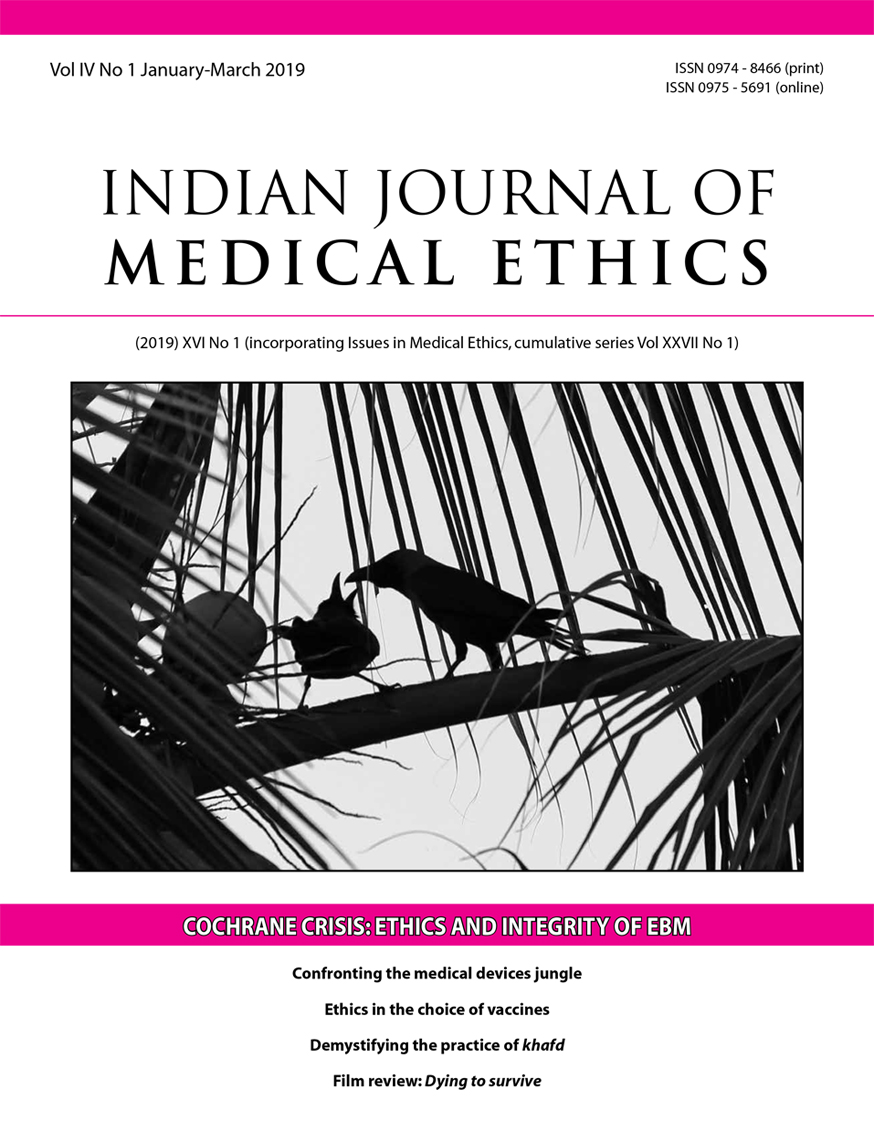
This first issue of the year is chiefly about learning from the past. A respected international research organisation is ripped apart by dissension, and yet another medical scandal comes to light about medical implants causing great suffering to recipients. We cannot be like bystanders making videos of the carnage, we have to draw important lessons from these happenings so as not to repeat them. The editorials in this issue seek to tell us how.
Three research studies record the reasons for the low incidence of whistleblowing in medicine and possible remedies; the effects of lack of autonomy on the distress caused to nurses and on their performance; how effectively games can be used to teach ethics to healthcare providers.
Our Comments explore how the choice of vaccine is an ethical issue; describe the illuminating use of medical themes in a literature class; critique the irrational bar on candidates with disabilities in admissions to medical courses; and question the restrictions on the use of ultrasonography which prevent access to it for multiple uses other sex determination. This and another comment on denial of the right to abortion demand revisions in the relevant laws.
In a Discussion on the Cochrane crisis, five authors discuss the issues that make it important for us in Asia and elsewhere to learn from.
We have lost a stalwart in the fight for universal access to quality healthcare in the tragic death of Dr Amit Sengupta of the People’s Health Movement. We pay him tribute.
Finally, the first ever IJME award for outstanding contribution to ethics in healthcare and improved access to healthcare for the marginalised has been awarded to Sr Dr Aquinas Edassery for her dedicated work in the Kalahandi district of Odisha. Our citation describes the achievements of her team.
Cover credit: “Darkness does not separate us” by Dr Uma Kulkarni
